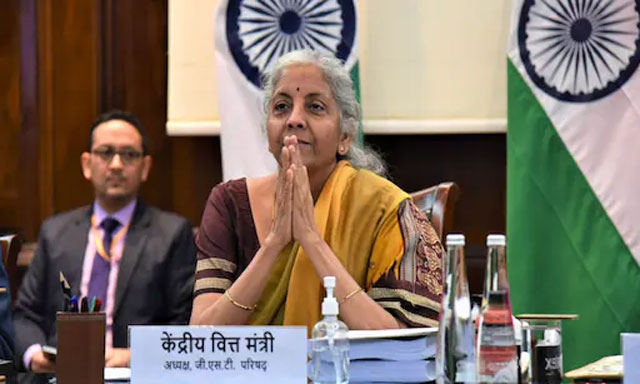Daijiworld Media Network- New Delhi
New Delhi, Sep 3: The Goods and Services Tax (GST) Council, headed by Union Finance Minister Nirmala Sitharaman, is set to meet on Tuesday to deliberate on major rate rationalisation measures, including a shift to a two-slab structure that could ease the burden on the middle class by lowering taxes on daily-use items.
The council, comprising finance ministers of states and Union Territories, will take up recommendations on a new simplified rate structure, compensation cess, and tax treatment for health and life insurance.

As per proposals, the new structure will have two primary slabs — 5 per cent and 18 per cent. Goods will be classified into ‘merit’ and ‘standard’ categories, with essential items likely to be taxed at the lower rate. A special ‘sin tax’ of 40 per cent will continue to apply on items such as tobacco products and luxury automobiles, restricted to a list of five to seven goods.
The move comes as part of the government’s push for “next-generation reforms,” as highlighted earlier by Prime Minister Narendra Modi. Currently, GST has four slabs — 5, 12, 18, and 28 per cent. Under the new system, nearly 90 per cent of products in the 28 per cent slab will shift to 18 per cent, while a large chunk of daily-use items will drop from 12 per cent to 5 per cent.
Officials said the rationalisation, expected to result in a revenue loss of around Rs 50,000 crore, is aimed at spurring consumption, particularly among the middle class. The government believes higher demand will offset the shortfall and, in turn, give a fresh boost to economic growth.
India’s GDP grew 7.8 per cent in the first quarter of FY26, outpacing the earlier 6.5 per cent estimate. A recent SBI Research report suggested that GST reforms, when combined with income tax cuts, could lift consumption by Rs 5.31 lakh crore — nearly 1.6 per cent of GDP.
The reforms are aligned with three key principles — structural changes, rate rationalisation, and ease of living — in line with the Centre’s vision of making India a self-reliant, globally competitive economy.
Meanwhile, opposition-ruled states including Tamil Nadu, Punjab, and West Bengal have expressed concerns over the potential revenue impact. They have demanded assured compensation for losses and suggested an additional duty on sin and luxury goods to balance revenue neutrality. Eight state finance ministers are expected to make their case before the council during Tuesday’s discussions.